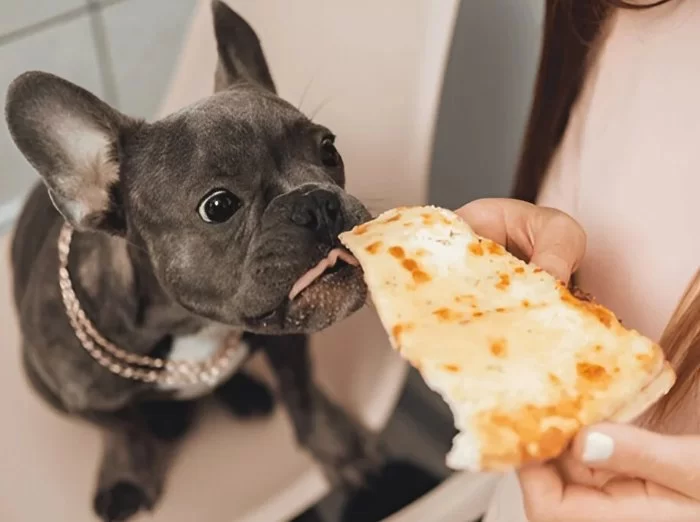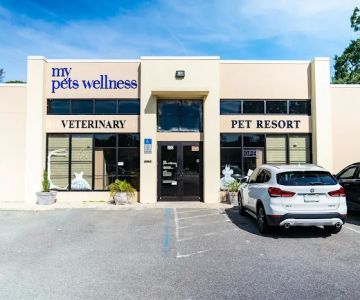Can Pets Eat Human Food? Safe vs Dangerous Foods
As pet owners, we love to share everything with our furry friends, but when it comes to food, it's essential to know what is safe and what can be dangerous. Many of us have been tempted to offer our pets a bite of our meal, but not all human foods are suitable for them. In this article, we’ll explore the types of human food that are safe for pets and the ones that can pose serious risks to their health.
1. Why Should We Be Careful With Human Food?
Our pets' digestive systems are very different from ours, and certain foods can lead to digestive issues, poisoning, or even life-threatening conditions. For example, while a human may have no issues digesting chocolate, it can be toxic to dogs. Additionally, foods rich in fat and sugar can cause long-term health problems, such as obesity, diabetes, and heart disease in pets.
Understanding the right foods to share with your pet—and more importantly, which foods to avoid—is crucial for maintaining their health and well-being. Let's look at some of the most common foods and their effects on pets.
2. Safe Foods You Can Share With Your Pets
While many human foods are off-limits for pets, there are several options that are not only safe but also nutritious. Here are some safe choices to consider when feeding your pets a little something extra:
2.1. Lean Meats
Most pets can safely enjoy small amounts of lean meats, such as chicken, turkey, or lean beef. These proteins are a great source of nutrients and can be a healthy treat for your dog or cat. Be sure to remove any seasoning, bones, or skin, as these can pose a risk to your pet.
2.2. Carrots and Other Vegetables
Many pets enjoy fresh vegetables, and carrots are a popular choice. They're not only safe but also beneficial for their teeth. Other veggies like peas, green beans, and sweet potatoes can be a healthy addition to your pet’s diet, providing essential vitamins and fiber.
2.3. Plain Rice or Pasta
Plain cooked rice or pasta can be a good option for dogs with an upset stomach, as they are easy to digest. This can also serve as a bland meal to help soothe digestive issues. Just be sure the pasta is plain—avoid sauces or seasonings like garlic and onion, which can be harmful to pets.
3. Dangerous Human Foods for Pets
While some foods are safe for pets, there are many common human foods that can cause serious harm. It’s essential to avoid feeding these foods to your pets:
3.1. Chocolate
Chocolate is one of the most well-known toxic foods for dogs. It contains theobromine, which dogs cannot metabolize. Even small amounts of chocolate can lead to symptoms such as vomiting, diarrhea, seizures, and in severe cases, death. Dark chocolate is especially dangerous due to its high concentration of theobromine.
3.2. Grapes and Raisins
Grapes and raisins can cause kidney failure in dogs, even in small amounts. The exact reason why grapes and raisins are toxic to some dogs remains unclear, but symptoms include vomiting, lethargy, and loss of appetite. Always keep grapes and raisins out of reach of your pets.
3.3. Onions and Garlic
Onions and garlic—whether raw, cooked, or powdered—contain compounds that can damage a pet’s red blood cells, leading to anemia. Even small amounts of these foods can cause poisoning in cats and dogs. Symptoms include weakness, lethargy, and a decrease in appetite. It’s best to avoid all forms of onions and garlic in your pet's diet.
3.4. Alcohol
Alcohol is incredibly toxic to pets and can cause severe symptoms such as vomiting, diarrhea, difficulty breathing, tremors, and even coma. Even small amounts of alcohol, such as what might be in a cake, ice cream, or beer, can lead to serious consequences. Always keep alcoholic beverages away from your pets.
4. What to Do If Your Pet Eats Something Dangerous
Despite our best efforts to keep harmful foods out of our pets' reach, accidents can happen. If your pet ingests something potentially dangerous, it’s crucial to act quickly. Here’s what you should do:
4.1. Identify the Food
If you believe your pet has eaten something harmful, try to identify exactly what they consumed. The sooner you can pinpoint the food, the better the chances of receiving appropriate treatment. If you're unsure, bring any packaging or leftovers with you to the vet.
4.2. Call Your Veterinarian
Contact your veterinarian immediately if you think your pet has ingested something toxic. The vet may be able to advise you on whether you need to bring your pet in for immediate care or if you should monitor them at home. In some cases, they may recommend inducing vomiting or administering activated charcoal to prevent further absorption of toxins.
4.3. Visit the Emergency Vet
If your pet is showing symptoms of poisoning, such as vomiting, lethargy, or difficulty breathing, take them to the nearest emergency veterinary clinic right away. Quick intervention can make a big difference in the outcome.
5. Preventing Accidents and Keeping Pets Safe
The best way to protect your pet from harmful foods is by preventing access to them in the first place. Here are a few tips for keeping your pets safe:
- Keep human food out of reach, especially in kitchens and dining areas.
- Educate family members about safe and unsafe foods for pets.
- Offer pet-friendly treats instead of human food.
- Be cautious when eating around your pet and avoid feeding them scraps.
If you’re ever unsure about what foods are safe for your pet or if you have concerns about their health, don't hesitate to reach out to us at Hidden Brook Veterinary for advice, recommendations, and more!












